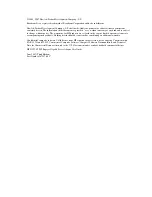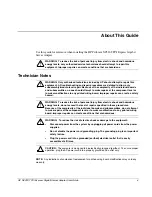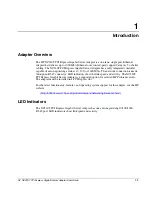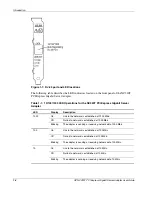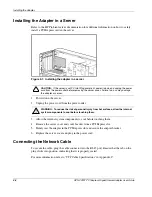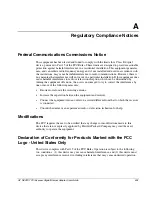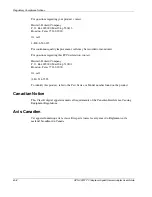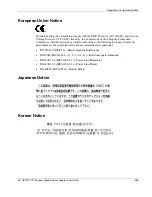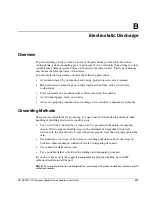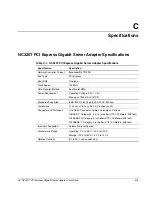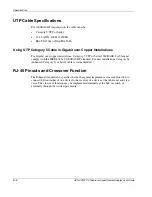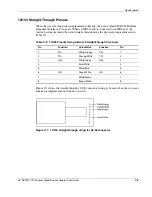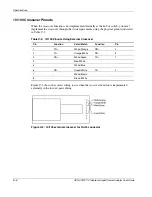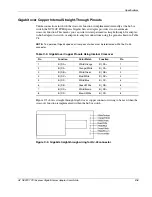
2
Installing the Adapter
Overview
This chapter describes installation precautions and explains how to install the adapter. It also
describes how to connect the network cable.
WARNING: To avoid the risk of personal injury or damage to the equipment, consult
the safety information and user documentation provided with the equipment before
attempting installation of the adapter.
Many servers are capable of producing energy levels that are considered hazardous.
Users should not remove enclosures, nor should they bypass the interlocks provided
for removal of these hazardous conditions.
Installation of this adapter should be performed by individuals who are both qualified
in the servicing of computer equipment, and trained in the hazards associated with
products capable of producing hazardous energy levels.
This server adapter is intended for use with UL Listed ITE equipment having
instructions on adding and removing components such as PCI, PCI-X, and PCI Express
devices.
NOTE: Before removing the cover of the server, refer to the HP documentation for the proper methods
for installing a PCI Express card and avoiding electric shock hazards.
Electrostatic Discharge Precautions
A discharge of static electricity from a finger or other conductor can damage components on
the adapter. This can make the adapter inoperable. In addition to the following information,
refer to Appendix B for more precautions.
To prevent electrostatic damage, observe the following precautions:
•
•
•
•
•
Always properly ground yourself when touching a static-sensitive component or
assembly.
Avoid hand contact by transporting and storing parts in static-safe containers.
Keep electrostatic-sensitive parts in their containers until they arrive at static-free
locations.
Place containers on a grounded surface before removing the contents.
Avoid touching pins, leads, or circuitry.
HP NC320T PCI Express Gigabit Server Adapter User Guide
2-1


